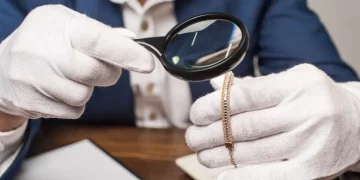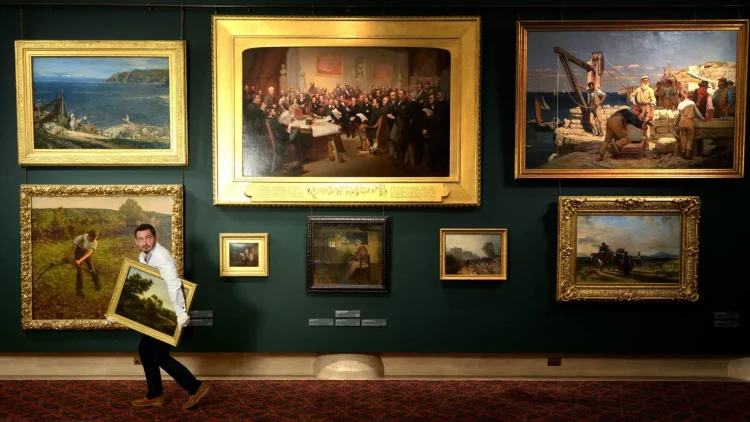In recent years, the world of rare collectibles has been growing, not only in the economic sense but also in the scope of how it is regulated and monitored. While it’s easy to think of collectors as a group operating in the shadows, only interested in acquiring rare and often valuable items, there is a much deeper, and more concerning, side to the story. Many people in the collecting community are unaware that their hobbies might be tracked by government entities. This article explores the existence of government-run databases dedicated to monitoring and tracking collectors and their acquisitions, the implications of such systems, and how collectors can protect their privacy from potential overreach.
The Shadow of Tracking: Does It Really Exist?
When most people think of government databases, they typically imagine criminal records, tax information, or citizenship data. Rarely do they consider the possibility that the objects they collect—be they fine art, antique weapons, vintage cars, or rare stamps—are part of a national tracking system. But recent revelations suggest that some governments, particularly in countries with strict laws surrounding the ownership and trade of rare items, have been quietly compiling databases of private collectors.
The idea of a “government database of collectors” is one that authorities have repeatedly denied. Many collectors, therefore, assumed that no such registry existed, particularly in countries where personal property is considered a private matter. However, various reports have shown that some government agencies, including customs departments, law enforcement, and even intelligence agencies, have been involved in tracking rare objects and the collectors who own them. While this information might not be centralized in a single database, multiple interconnected systems have been quietly built over time, creating a complex web of information.
The Creation of Collectors’ Databases: Why They Exist
The reasons behind the creation of these government databases can be traced to several key factors, some of which are tied to security concerns, cultural preservation, and international trade regulations. Many rare items—whether they are cultural artifacts, historical documents, or high-value collectibles—are susceptible to theft and trafficking. Governments, particularly those with a vested interest in cultural patrimony, may create databases to monitor the movement of these items, ensuring that they are not illegally exported, sold, or traded.
Moreover, databases are often used to monitor compliance with various laws, such as the U.S. Lacey Act, which regulates the trade of certain protected species and items made from them. For example, a rare piece of ivory, an antique firearm, or an endangered species taxidermy might trigger legal scrutiny if not properly documented. Such tracking ensures that no illegal or ethically questionable activities are taking place under the guise of collecting.
Finally, the increasing value of high-end collectibles and their connection to money laundering activities have pushed some governments to scrutinize the movement of rare items. There are concerns that rare art, antiques, and other collectibles could be used to launder illicit funds or avoid taxes. This has led to a growing focus on tracking these items and the individuals who own them.
Who Is Being Tracked?
In theory, the idea of a government database of collectors might sound like a measure to protect national heritage and ensure the legality of rare trades. However, the reality of how such databases are populated—and who gets included in them—raises several concerns.
First, the vast majority of individuals who are tracked in such databases are not involved in criminal activity. Many of them are simply private collectors with a passion for preserving history, art, or culture. These people are not seeking to sell or trade items illegally but are rather indulging in a personal hobby that has become increasingly commercialized.
However, the criteria for inclusion in these databases are not always clear. In some cases, the only information needed to flag a collector is a high-value purchase or the acquisition of a rare item that falls under government scrutiny. If a collector buys a valuable painting, an antique weapon, or even a piece of rare jewelry, they could find themselves on a list that is monitored by government agencies.
Additionally, international agreements designed to curb the illegal trade of artifacts have led to increased vigilance. Items that are culturally significant—such as ancient relics from Egypt, Mesopotamia, or Greece—are highly coveted by collectors worldwide. In these cases, collectors may unknowingly acquire stolen or illicitly traded items that fall under international cultural preservation laws.

The Risks of Being Tracked
While collectors might believe that owning rare items is a private affair, being included in a government database can expose them to several risks. For one, they could find themselves subject to increased scrutiny, including inspections of their collection and an invasive examination of their purchasing history. In countries with more authoritarian regimes, these types of databases could be used for purposes beyond just legal compliance, potentially leading to unwarranted investigations or even asset seizures.
Another risk lies in the potential for private information to be leaked. Collectors’ personal details—names, addresses, and purchasing histories—could be exposed if a database were to be hacked or improperly accessed. This could result in targeted thefts, blackmail, or even physical harm. The collection of personal data also raises concerns about privacy and the ethics of surveillance, particularly when no clear legal framework exists to protect collectors’ rights.
In addition, the ever-expanding global market for rare items means that the potential for government intervention could increase. For instance, the U.S. and Europe have strict regulations on the trade of items made from endangered species, including certain types of wood, ivory, and fur. A collector who unknowingly acquires an item that violates these regulations could face heavy fines or legal consequences, even if their purchase was made in good faith.
The Rise of Privacy Concerns
As the world becomes increasingly digitized, the privacy of collectors has become a hotly debated issue. For many collectors, the idea of their personal purchases being monitored and tracked by government agencies is an invasion of privacy. While certain tracking systems may be justified for regulatory or security reasons, there is a growing concern that these measures could be used to target collectors who have done nothing wrong.
In response, many privacy advocates are calling for stronger protections for collectors and more transparency regarding what data is being collected. While it is difficult to gauge the full scope of these systems, there are several privacy protection measures that collectors can take to protect their identities and their collections.
Privacy Protection Tips for Collectors
- Limit Personal Information Sharing: When purchasing rare items, collectors should avoid sharing unnecessary personal information with vendors, auction houses, or online platforms. The less information that is publicly available, the less likely it is to be included in government databases.
- Use Third-Party Experts: To protect their privacy, some collectors hire third-party appraisers, dealers, or consultants who act as intermediaries. This can shield personal information from being directly linked to specific acquisitions.
- Consider Anonymous Buying Methods: Some collectors prefer to purchase items through anonymous means, such as bidding on auctions with proxy bids or using cryptocurrency, which can help obscure their identity in financial transactions.
- Understand Local Laws: It’s crucial to understand the regulations surrounding collectible items in one’s country and internationally. Knowing the rules for specific types of acquisitions—whether it’s art, antiques, or weapons—can help prevent inadvertent violations.
- Consult Legal Advisors: For collectors with high-value or controversial items, seeking the advice of legal experts in cultural property law can help navigate the complexities of international regulations and databases.
- Track Your Collection: Maintain a detailed, private record of all items in your collection. This helps ensure that you have the necessary documentation in case of theft, disputes, or insurance claims.
The Road Ahead: Is Transparency the Solution?
The creation and use of government databases to track collectors is a complex issue that raises questions about privacy, security, and cultural preservation. While some level of regulation is necessary to prevent the illegal trade of rare and culturally significant items, it’s important that privacy rights are also respected.
Collectors must be aware of the potential risks they face in an increasingly surveilled world and take proactive steps to protect their personal information. By staying informed about local laws, employing privacy-conscious purchasing methods, and understanding the broader implications of government tracking, collectors can continue to engage in their hobbies while mitigating the risks associated with being on a government database.
As this issue continues to evolve, it will be crucial to find a balance between necessary regulation and the right to privacy. The future of collecting may depend on it.

















































